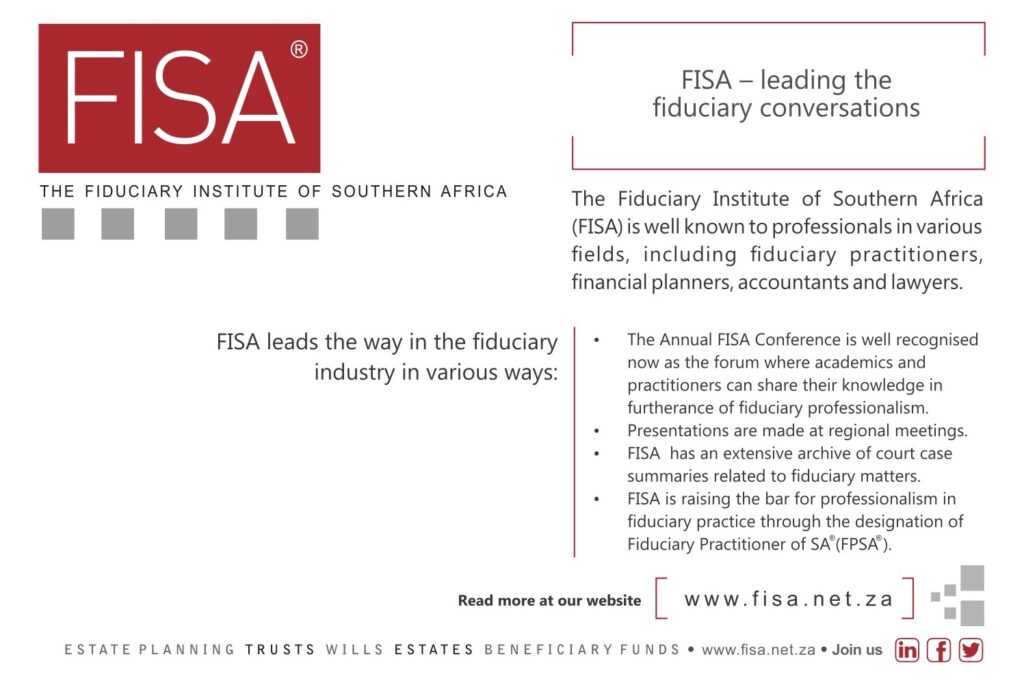The promulgation of the Act has brought significant challenges for advisors in the fiduciary space.
Louis Van Vuren, CEO of the Fiduciary Institute of South Africa (FISA), sheds light on the legislative changes and FISA’s response to the new regulations. In a recent conversation, Tony interviews Louis to understand the implications of the amendments and how advisors are expected to navigate the compliance landscape.
The Impact of the General Laws Amendment Act

Louis begins by highlighting the context behind the General Laws Amendment Act. South Africa was potentially to be “grey listed” by the Financial Action Task Force (FATF) due to concerns regarding money laundering and terrorism financing. In response, the government published the General Laws Amendment Bill in August of the previous year, which later became the General Laws Amendment Act of 2022. The Act, along with the subsequent promulgation of regulations, introduced a new compliance burden for the industry, raising concerns among advisors.
The Concept of Beneficial Ownership
One of the key aspects of the General Laws Amendment Act is the introduction of the concept of beneficial ownership into the Trust Property Control Act of 1988. However, Louis explains that this concept is unfamiliar in South African common law, as it originated from Anglo-American legal systems. While beneficial ownership has been applied in company law to address shareholding arrangements, it does not align with South African property law, which recognizes unitary and universal ownership. Louis argues that introducing beneficial ownership into South African trust law is foreign and raises valid concerns about its compatibility with South African legal principles.
FISA’s Efforts and Engagement
Recognizing the challenges posed by the General Laws Amendment Act, FISA made submissions to the Parliamentary Standing Committee on Finance (SCOF). Louis attended the public hearing of the committee, where FISA pointed out the issues surrounding the introduction of beneficial ownership into the Trust Property Control Act. Despite some minor changes being made to the original bill, the Act moved forward without significant alterations. Louis describes the process as a “Juggernaut” that was difficult to stop.

FISA – leading the fiduciary conversations
- The Annual FISA Conference is well recognised now as the forum where academics and practitioners can share their
- knowledge in furtherance of fiduciary professionalism.
- Presentations are made at regional meetings
- FISA has an extensive archive of court case summaries related to fiduciary matters
- FISA is raising the bar for professionalism in fiduciary practice through the designation of Fiduciary Practitioner of SA
ESTATE PLANNING. TRUSTS. WILLS.ESTATES. BENEFICIARY FUNDS
Compliance Challenges for Trustees
Here the conversation delves into the practical implications of complying with the Act. Louis explains the extensive definition of beneficial ownership, which encompasses various individuals involved in the trust structure. The requirement for trustees to disclose and record the beneficial ownership of natural persons presents challenges, particularly when dealing with corporate trustees and their underlying shareholders. The regulations create practical difficulties in establishing and maintaining accurate records, leaving trustees with unanswered questions and uncertainties.
Deadlines and Obligations
Regarding the issue of deadlines and obligations for trustees, Louis clarifies that the 31st of May deadline mentioned pertains to anti-money laundering reports under the Financial Intelligence Centre Act (FICA), specifically for those involved in setting up and administering trusts. The deadline does not pertain to the creation of the beneficial ownership register required under the General Laws Amendment Act. FISA has been actively disseminating information to its members regarding these obligations and changes.
Upcoming FISA Conference
FISA’s upcoming 13th Annual Conference, scheduled for the 17th of October at the Sandton Convention Centre, will address the pertinent issues arising from the legislative changes. The conference, as in previous years, aims to strike a balance between academic theory and practical application, offering insights to members and other professionals. The conference will provide a platform to discuss the challenges and implications of the General Laws Amendment Act.

